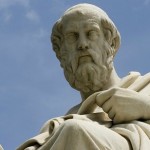We run our website the way we wished the whole internet worked: we provide high quality original content with no ads. We are funded solely by your direct support. Please consider supporting this project.

What is the significance of Esther 4:14?
The wise Mordecai encourages Esther to bravely risk her life by pleading the case of the Jews before King Xerxes, saying, “…if you remain silent at this time, relief and deliverance for the Jews will arise from another place, but you and your father’s family will perish. And who knows but that you have come to royal position for such a time as this?”
Mordecai is certain that relief will come to the Jews, sooner or later. But the fate of Esther and her family depends on the free decision she has to make. And it may be, he says, that God has raised Esther up in these circumstance to be the means by which he brings relief to the Jewish people. Yet, even God’s plans, to some degree, hang upon the “if” of personal decisions.
Category: Q&A
Tags: Open Theism, Q&A
Topics: Open Theism
Verse: Esther 4
Related Reading

Reflecting on Open2013
T. C. Moore has posted some of his reflections from the Open Theism conference. T. C. was one of several people who pulled this conference together and he did a great job. He’s also incredibly smart and very active in the open view community. Also, he’s a young church planter in Boston and I’m sure he’s…

Podcast: Is an Open Future World a Logically Possible World?
Greg gets technical in this abstract, yet profound, introduction to an open theist’s interpretation of the square of opposition. http://traffic.libsyn.com/askgregboyd/Episode_0217.mp3

How do you respond to Acts 4:27–28?
“[B]oth Herod and Pontius Pilate, with the Gentiles and the peoples of Israel, gathered together against your holy servant Jesus, whom you anointed, to do whatever your hand and your plan had predestined to take place.” This passage is very close in content to Acts 2:23 (see How do you respond to Acts 2:23?). While…

Podcast: If the Future is Open How Can We Know God Wins in the End?
Greg discusses the open future and speculates on how God can still be assured victory in the end. http://traffic.libsyn.com/askgregboyd/Episode_0069.mp3

Podcast: Can God Be Surprised?
Greg talks heaven and hell in this solid little episode. http://traffic.libsyn.com/askgregboyd/Episode_0394.mp3

Is Your Christianity Shaped by Plato or the Bible?
The Timaeus is a work that Plato wrote that addresses the questions: “What is that which always is and has no becoming, and what is that which becomes but never is?” (Tim. 28a)? These questions contain one of the most influential – and, in my opinion, one of the most disastrous – philosophical ideas of…
